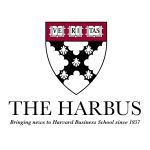Measuring academic and social reality
Organizations that seek to create strong cohesion among their constituents often rely on intense orientation processes to quickly forge interpersonal bonds. The military has Basic Training, professional sports have Training Camp, and Greek Life (the American sort) has pledging. For the appropriate HBS analog, one might automatically point to START; in fact, this was only the start.
Those that report to Required Curriculum Headquarters™ assure students that HBS will transform them to an extent rivaled only by characters in a Shia LaBeouf franchise. Initial intuition may be that this metamorphosis is divisible – we get skills and new knowledge from the classroom while cultivating connections that reshape our outlook outside Aldrich.
Through the first few fortnights of the RC year, the in-class and out-of-class components often feel in competition; spinning on a hamster wheel of three-case days draws precious time, energy, and highlighter ink that could otherwise be spent illuminating new social possibilities. In essence, these weeks are a reminder to those found forgetful that business school does, indispensably, involve school.
To be sure, it is a good and desirable thing for a program that carries the imprimatur of Harvard Business School to be rigorous and developmental. Our friends by the Longwood station, among others, may scoff at our consideration of arduous classwork, but the real issue is likely the mythology that surrounds business school as purely experiential. In the trucks of August, you haul anticipation for a two-year sabbatical from responsibility full of uninterrupted pursuit of self-actualization.
However, it’s possible that these aren’t irreconcilable differences, and perhaps FRC could provide a measure of reality.
On one hand, yes - the goal of taking FRC is to develop fluency (or limited working proficiency) in the language of business. Students who have demonstrated excellence in engineering, social science, and military professions may be introduced for the first time to the highly specific riddles of Generally Accepted Accounting Principles. Classmates with strong finance backgrounds (increasing their debt-to-equity ratio to attend business school) are challenged to examine first principles and nebulous contexts. And every section’s heroic CPAs are called to fact-check the room with dispatch when case musings become Generally Unaccepted.
But take a stroll through Spangler on any FRC eve, and in addition to many expressions that resemble the Kumon logo’s o-face, you recognize some tangible goodwill abound. Classmates convene to decipher the most recently dropped T-account while sufficiently insuring themselves against the morrow’s elegantly planned Cold Call (special shoutout to Section D’s Professor Zou for her masterful weaving). With every study session come study breaks, and with study breaks come conversations revealing the story behind the troops in your trench.

Credit is due to the HBS grading policy that incentivizes collaboration and cross-learning. And FRC is certainly not alone in translating schoolwork into a team sport – TOM, FIN1, and other RC courses often bear similar responsibility for uniting students under a banner of struggle and support.
Indeed, one valuable feature of the HBS student body is that each person likely comes to campus with a course that they could tutor. A classmate who lends a hand to another in the RC Fall may receive their principal back in full during EC Spring.
So it’s true that getting to know your classmates at Mighty Squirrel Taproom, Benihana, or an aluminum smelting plant is probably preferable to finding common cause in case-based analysis thereof. And it’s true that business school is a short space of time that we strive to maximize in ways beyond the latter word’s attendant responsibilities.
But when we close the books a couple years from now, I think we’ll look back on this time as foundational in our Start of Something New. The group chats and chatting groups we formed to tackle the case of a September night may have endured long into and after our time by the Charles. And the personal journey that an MBA (and Headquarters) promised would have been deepened by the intense experiences shared among our fellow travelers.
In the perceived contest between classwork and connection, it just may be that both sides balance.

Arjun Prakash (MBA ’26) previously worked at McKinsey & Company and the Center for Medicare and Medicaid Innovation. He enjoys tennis, TV dramas, political history, and Boston and Michigan sports.

Comments